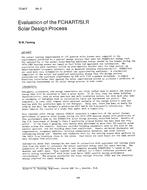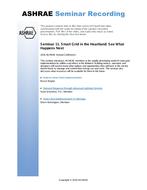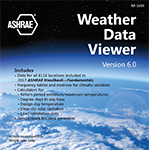Application of radiant barriers and low-emittance surface coatings in residential building attics can significantly reduce conditioning loads fromheat flow through attic floors. The roofing industry has been developing and using various radiant barrier systems and low-emittance (low-e) surface coatings to increase energy efficiency in buildings; however, minimal data are available that quantify the effectiveness of these technologies.
This study evaluates performance of various attic radiant barrier systems under simulated summer daytime conditions and nighttime or low solar gain daytime winter conditions using the large scale climate simulator (LSCS). The four attic configurations that were evaluated are 1) no radiant barrier (control), 2) perforated low-e foil laminated oriented strand board (OSB) deck, 3) low-e foil stapled on rafters, and 4) liquid applied low-emittance coating on roof deck and rafters. All test attics used nominal RUS 13 h x ft² x °F/Btu (RSI 2.29 m² x K/W) fiberglass batting insulation on the attic floor. Results indicate that the three systems with radiant barriers had heat flows through the attic floor during summer daytime condition that were 32.8%, 49.8%, and 19.1% lower than the control, respectively.
Presented at Thermal Performance of Exterior Envelopes of Whole Buildings XII, December 2013
Citation: Thermal Performance of Exterior Envelopes of Whole Buildings XII
Product Details
- Published:
- 2013
- Number of Pages:
- 8
- File Size:
- 1 file , 2.3 MB
- Product Code(s):
- D-BldConf13-30


